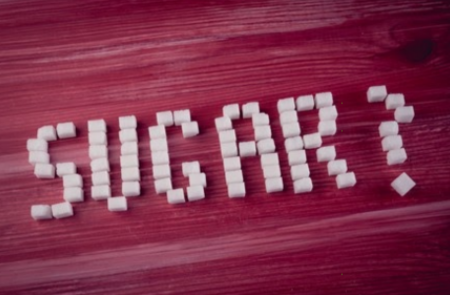Sugar: Delightful or Deadly?

January 6, 2021
Dear Editor:
Imagine a world where there is an intoxicating substance in over half of everything we eat. A world where research has shown that this imaginary substance is influential in causing conditions such as diabetes, heart disease, obesity, and Alzheimer’s disease, to name a few; however, manufacturers still include it in most food products and the general population continues to buy it in excess for the rush of pleasure and delicious taste it provides. If people would stop consuming exorbitant amounts of this product, it would drastically improve the health and well being of the population as a whole, but for some reason, people refuse. How would it feel to live in such a world? Now, pay attention, for this is our world, and the aforementioned substance is none other than sugar.
Sugar.
That intoxicating, delicious, and highly dangerous ingredient that is found in most regularly eaten foods. Professor and Ph.D. Barry M Popkin and Ph.D. Corinna Hawkes stated in a very detailed study, “74% of products in the US food supply contain caloric or low-calorie sweeteners, or both.” This fact wouldn’t be a problem if sugar produced positive effects on our health, but it doesn’t; herein lies the problem. Sugar is found in most things that humans regularly consume and it produces multiple adverse consequences to human health. When speaking about diseases such as heart disease, diabetes, cancer, stroke, and Alzheimer’s disease, bestselling author and researcher Gary Taubes writes, “Put simply: without [sugar and high-fructose corn syrup] in our diets, [this] cluster of related illnesses would be far less common than it is today; likewise other disorders that associate with these illnesses, among them polycystic ovary syndrome (PCOS), rheumatoid arthritis, gout, varicose veins, asthma, and inflammatory bowel disease.” This doesn’t even touch on the mental benefits of not eating sugar, but still provides quite a lengthy list of diseases and conditions that are common today and would not be without society’s apparent obsession with constantly consuming some form of sugar.
It seems that, although sugar consumption has been shown to be a serious detriment to human health, people are intoxicated by, and even addicted to, the pleasure felt from its exquisite sweetness. Bestselling author, journalist, and researcher Michael Pollan described his son’s first experience eating sugar: “I have only the testimony of Isaac’s face to go by (that, and his fierceness to repeat the experience), but it was plain that his first encounter with sugar had intoxicated him -was in fact an ecstasy, in the literal sense of that word. That is, he was beside himself with the pleasure of it, no longer here with me in space and time in quite the same way he had been just a moment before. Between bites, Isaac gazed up at me in amazement (he was on my lap, and I was delivering the ambrosial forkfuls to his gaping mouth) as if to exclaim, ‘Your world contains this? From this day forward I shall dedicate my life to it.’” Pollan observed what many in the world seem unable to understand, that sugar is indeed intoxicating, maybe even addicting. As such, without our conscious effort, it has the potential to dominate our diets much more than it already has.
This is the world we live in. A world of sugar, a world of disease, a world of intoxication. But it doesn’t have to be. The only reason sugar is dominant in our society is because we let it be. Though it will be difficult if not impossible to completely eradicate sugar, we can still chip away at its monopoly by minimizing the sugar that we consume. One by one, we can make the world a healthier and stronger place. One by one, we can make a difference.
Sincerely,
Kaymi Soderberg, Class of 2022

